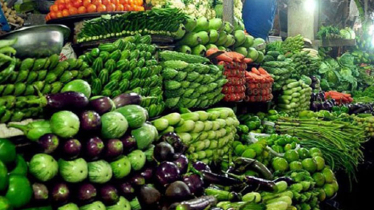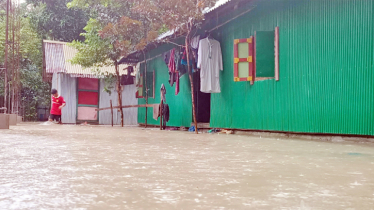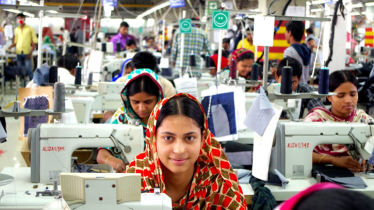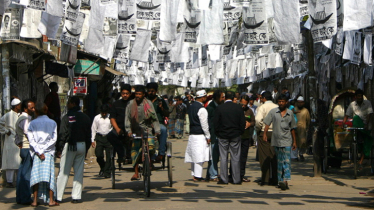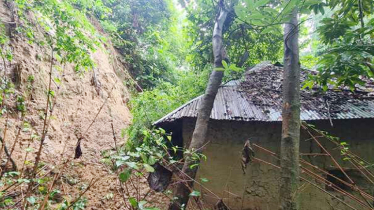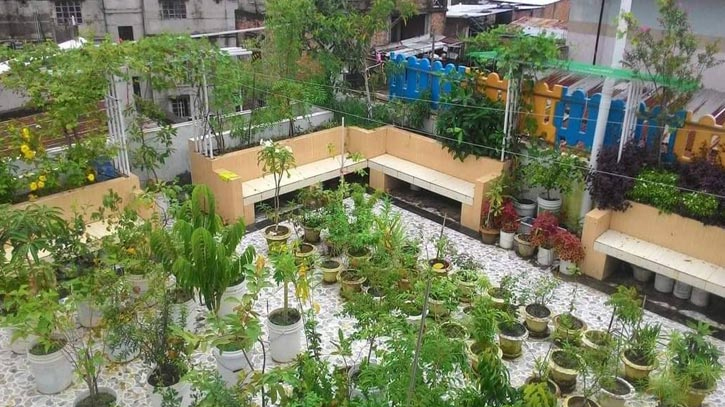
Photo : Collected
Roof gardening is gaining popularity, particularly in urban centers, with the capital city. Many houses now boast diverse gardens on their rooftops, showcasing a growing interest in rooftop agriculture among urban dwellers. This surge in rooftop gardening brings about various benefits creating new avenues for success.
Dhaka, the capital city, is characterized by approximately 60% of its land covered by vacant roofs. According to Rajuk, there are around 40 lac buildings, both large and small, with a combined roof area of about 80 square miles. The city, home to 1 crore and 70 lac people, is projected to reach a population of 2 crore and 74 lacs by 2030. With each person consuming approximately 550 liters of oxygen daily, the city will require a staggering 1.507 billion liters of oxygen per day in 2030. Rooftop gardens have the potential to become a significant source of this essential oxygen.
Implementing rooftop gardens in Dhaka is not only an effective and cost-efficient means of purifying the air, but it is also comparable to the size of a small country. This practical solution can contribute to meeting the city’s increasing oxygen demands. Rooftop gardens play a crucial role in temperature reduction within the city. Environmentalists state that a roof garden can lower indoor temperatures by approximately 1.73 degrees Celsius compared to the outdoor temperature. One vegetable plant alone can supply oxygen to three people for three months, contributing to a potential temperature reduction of up to 7 degrees through rooftop gardening.
Apart from environmental benefits, rooftop garden serves as economic advantages. Growing vegetables on the roof of a modest-sized house can generate an additional income of 50,000 taka annually, supplementing the family’s needs. A 1400 square feet house’s rooftop, with improved techniques and resources, may yield an average monthly income of Tk 2000.
Despite the evident benefits, there is a lack of government sponsorship, guidelines, or assistance for rooftop gardens. To promote and regulate rooftop gardening, there is a need for government policies and rules. Mandatory inclusion of rooftop gardens in urban planning can ensure easy access to quality seeds, soil, and other materials, along with training in advanced agricultural practices.
As we approach in a crucial moment, it is important to address where the oxygen for Dhaka’s projected 2.74 million people will come from. The responsibility lies in contemplating the potential conditions of Dhaka and taking visionary and effective steps to ensure a sustainable and green future for the city.
Messenger/Fameema

